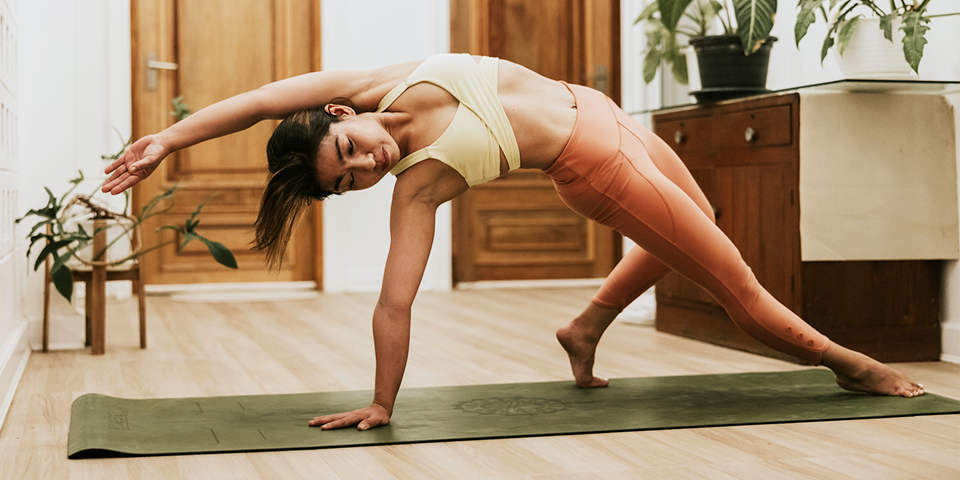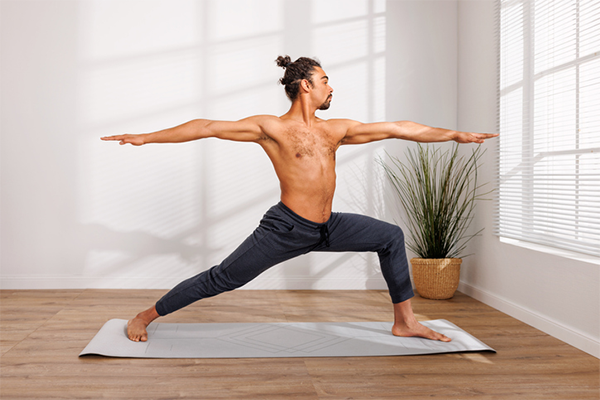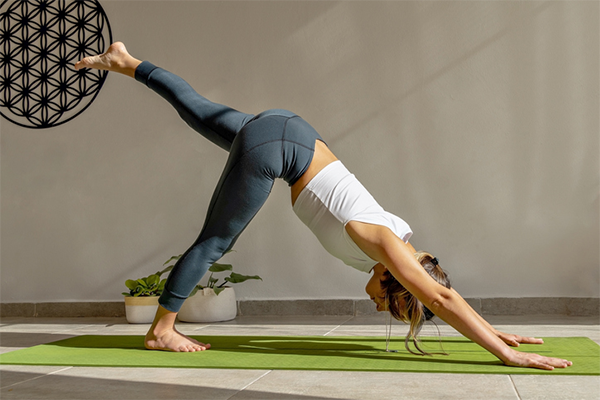Love yoga but also love tough workouts? With cardio yoga, there’s no need to choose.
If you prefer adding pulses to your warrior poses, love doing push-ups in your down dog, or crave the go, go, go flow of sun salutations, this heart-pumping practice may become your new favorite workout.
Cardio yoga is any yoga that elevates your heart rate into the “cardio zone,” taking your practice from a chill stretching session into one that helps meet your cardio goals.
Read on to learn whether your practice counts and the benefits that cardio yoga can offer, before you decide if it’s right for you.
What Is Cardio Yoga?
“Cardio yoga would be any type of class that incorporates yoga asanas (poses) that get your heart rate up and challenge your cardiovascular system,” says Ann Swanson, MS, C-IAYT, author of Science of Yoga.
While you might not find classes explicitly labeled “cardio yoga,” forms like vinyasa flow and power yoga fit the bill. These types of yoga move quickly from one pose to the next.
The pace of cardio yoga is faster than what you’d expect from traditional yoga, but a well-designed class also includes rest periods to allow your heart rate to come back down.
“This conditions your heart to become stronger and more resilient,” Swanson says. (Just like a cycling class or run with intervals.)
You may even find yourself doing plyometric movements, like jumping to plank or hopping lunges, between yoga poses that challenge your strength and endurance.
“You’ll probably sweat even if the room isn’t warm,” Swanson says.
What Are the Benefits of Cardio Yoga?
Yoga that keeps your heart pumping is a time-saver, counting as both a cardio workout and a flexibility and mobility practice. Your mind may benefit, too.
We tend to associate restorative and slow flow yoga with stress reduction, but research shows that you may receive the same benefits from a more strenuous practice.
In one study published in the Journal of Health Psychology, women aged 18 to 30 participated in one-hour sessions of either power yoga or “stretch yoga,” a slow-paced yoga that focused on meditation, breathing exercises, and stretching. According to the research, the women who participated in the stretch yoga session as well as those who took the power yoga class experienced significant reductions in stress.
Can Cardio Yoga Help With Weight Loss?
Weight loss is a complicated equation with multiple variables, including age, sex, genetics, nutrition, lifestyle, and physical activity.
No yoga class is a silver bullet, but cardio yoga, when paired with a healthy diet, may help you burn calories, which can help you achieve a calorie deficit and lose weight over time.
A regular yoga practice may also support your chances of long-term weight loss.
In one recent study, members of the control group enrolled in a behavioral weight loss program that included professional and peer support, a nutritional plan, and guidance on exercise. The intervention group received the same resources, plus two 60-minute Iyengar yoga classes (a slower-paced form of yoga) per week.
According to the report, the yoga group lost significantly more weight (36 pounds vs. 15 pounds) after six months. Yoga also “resulted in greater distress tolerance, mindfulness, and self-compassion and lower negative affect.”
Is Cardio Yoga Better Than “Normal” Yoga?
No form of yoga is “better” than another; they all have their advantages and drawbacks. Your yoga practice should be based on your goals, experience level, health, and preferences.
For example, someone looking for a challenging workout may find that a cardio yoga workout is the best choice for them. But if you’re experiencing high levels of stress, consider a slow flow or restorative class instead.
And if you have any health concerns or injuries, consult with your health-care provider before adding cardio yoga or any new exercise to your routine. Once you receive the go-ahead, you may find it helpful to work with a certified yoga therapist who can answer questions, offer modifications for certain yoga poses, and provide information, resources, and guidance.
Can Beginners Do Cardio Yoga?
If you’re just beginning your yoga journey, start with a class designed for newbies before trying cardio yoga. In addition to learning the names of many poses and how to get into them safely, a slower-paced class will also give you an opportunity to learn how to breathe properly, which is the key to any yoga practice.
“A fast-paced yoga class may be harder for a beginner who doesn’t know the movements or safety cues yet,” Swanson says.
If you attempt a class that feels like cardio yoga and feel a bit in over your head, listen to your body, adjust the pace as needed, and do what can.
“Don’t get discouraged,” Swanson says. “Feel free to take breaks and visualize movements.” The same advice applies to yogis of all levels of experience.


